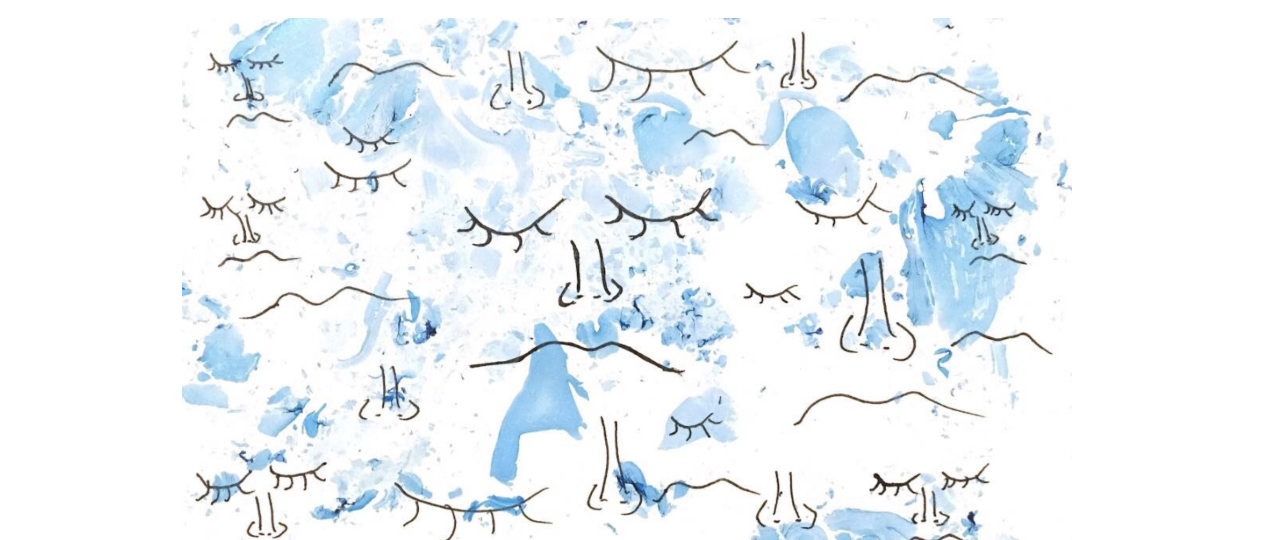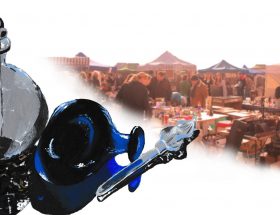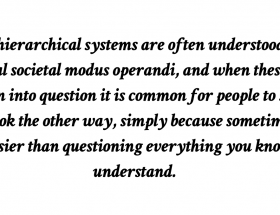There are potentially hundreds of versions of ourselves existing simultaneously in this plane of reality. Multiple editions of each of us exist within the minds of everyone we interact with; editions which are formed through their particular and personal lens. This lens is focused through the individual’s past experiences and pre-conceived notions; these factors enable each of us to see the world in a completely different way to the next person.
This, in turn, leads us, as social beings, to seek out our image in the minds of our peers. We find how a person relates to us, and we thus let that guide our interactions with them. Self-awareness enables us to tailor ourselves appropriately in front of different audiences. This manifests in tiny (or large, dependant on which audience) shifts in our mannerisms, accents and language; we can choose to use restricted code (slang, inside jokes) or elaborated code (formal speech) dependant on who we are interacting with. Thus, the presence of multiple selves is natural; we cultivate sub-selves which let us face different personal motivations and goals. Everyone has multiple social selves, as we are faced with different expectations from different audiences and a natural desire to fill those social roles.
The question I wish to pose is although the splintering of the self is natural, is it problematic? Although I recognise that being able to relate to multiple groups and individuals is a necessary part of socialisation, in cultivating social sub-selves, are we degrading our own authenticity, or is it a necessary condition in finding our place in society? Should we not be striving to find a singular authentic self?
I concede that I am privy to containing social sub-selves, and I am privy to wondering what version of myself lives in the mind of my loved ones. I also understand that in many instances, it is necessary to tailor yourself in situations where you need to show respect to a certain individual, or when you are maintaining social boundaries. Yet I simultaneously strive to find a single authentic and unapologetic self.
The ‘self’, being defined as a product of patterns over time, is always changeable, with the ever-competing facets of individuality. Yet I believe that striving for authenticity is all we can do; striving to combine the facets of ourselves to form a conflicting, ever-changing but honest singular self, as opposed to splintering ourselves to fit the mould.
art by Anna Kerr





Maybe all those sub-selfs are authentic selves? Why would we act in that way unless it’s the way we choose? And if it isn’t a way that we would choose if we were given another chance to form that relationship, then its dissonance from what we would do can give us an indication of what we do want and who we are. It all serves a purpose, I guess. I definitely act differently around different groups, but I revel in that – it means I get the opportunity to express myself in many different ways. If I got to choose to act as how I want to, I wouldn’t face any of the terrifying (to me) situations I find myself in and my life would be far less interesting 🙂
Had some thoughts about whether there can be an “authentic” self if it’s always changing, but it kinda leads into a rabbit hole of meta-analysis (and no one has time for that!) haha
Really thought provoking stuff, thanks anna x